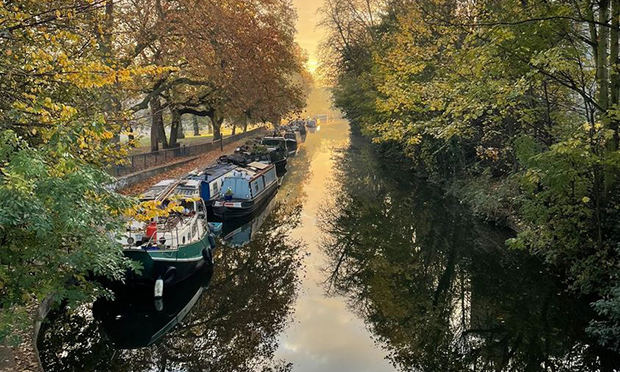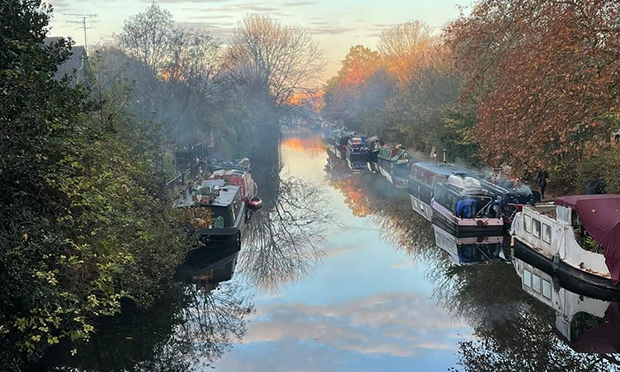Boaters call for clarity on £400 energy rebate as diesel theft on canals becomes ‘more common’

Boaters are facing an uncertain winter. Photograph: Hazel Gibson
Local houseboat owners are pushing for the government to include them in the £400 energy discounts being rolled out this month – as they raise concerns over rising fuel thefts.
The community has faced anxieties about fuel costs over the last year, with the government initially excluding them from the energy rebate.
There is now a short statement on the government’s website that includes off ‘off-grid’ homes in the scheme, but there is no information about the application process.
It comes after months of boat owners writing to MPs, as well as a petition to Whitehall by the National Bargee Travellers Association (NBTA) which surpassed 4,000 signatures.
People living on the canals are seeing huge price rises for the gas canisters, diesel, coal and firewood needed to heat and run a boat.
Hazel Gibson, who lives on a houseboat in Hackney, highlights how important it is that the government follows through.
She told the Citizen: “That £400 grant would really help to get me through the winter. I am worried about what the fuel crisis will mean. It does make me feel very left out we were not thought of.
“I haven’t put my multi-fuel stove on or my fire this year. We’re almost in November and it’s getting cold.”
According to Gibson, the price of coal has gone up by 50 per cent.

Boaters are advised to have £500 of fuel in their tanks to avoid engine problems during winter. Photograph: Hazel Gibson
Research also shows that the cost of the LPG gas that boat owners use doubled between June 2021 to June 2022.
‘Red diesel’ used for houseboats has also doubled.
“Me and lots of other people are also very nervous about the increase in thefts of diesel from boats,” Gibson added.
“Someone will go to start their boat and they can’t because someone has come and stolen their diesel the in the night. It is getting much more common.”
In winter, it is advised for tanks to be full of about £500 worth of diesel to avoid condensation that leads to engine problems.
“I am not in a position to replace £500 worth of stolen diesel,” Gibson said. “There are a lot of vulnerable people who live on the canals who do not have a lot of money.”
According to the NBTA, 40 per cent of boaters live on minimum wage, 51 per cent are likely to be on less than £20,000 a year, and some rely on food banks.
The organisation is worried about the elusiveness of the government’s statement.
It said: ‘The NBTA has received many enquiries from boat dwellers about how we can claim this grant. It has been disappointing to tell them that we do not know.”
With winter approaching, the NBTA added that it is “important the government takes this issue seriously”.
Gibson said another necessity boaters often miss out on is healthcare. Many have been refused a GP service or kicked off GP lists when it is found they have no fixed address, she explained.
“Accessing these sorts of things can be very tricky, especially if you are not good at advocating for yourself or English is not your first language.”
